



Jacobs. A world where you can.



As climate change threatens water security around the world, more communities are turning to water reuse as a resilient water supply solution and embracing the OneWater principle that all water has value. Jacobs has been supporting clients with water reuse programs for decades, beginning with the first applications of advanced wastewater treatment technologies in the 1960s. We provide our clients with a full range of services, from water reuse feasibility studies to design, construction and operations.



We’ve provided design-build services to the water sector for over 25 years and delivered more than 150 projects. We offer fully integrated design-build and design-build-operate capabilities to tackle the most complex water challenges and work in close collaboration with our clients.



For more than 30 years, Jacobs has been responsible for planning and implementing Lead and Copper Rule-related strategies which protect millions of people in the U.S. and Canada. Our work includes enhanced water quality monitoring strategies, sampling plan development, harvested pipe-scale analysis, lead service line inventories and replacement plans, corrosion control studies and the incorporation of equity and environmental justice considerations into compliance programs.



A curated selection of some of the top-listened to and trending podcast episodes from our popular If/When podcast series.



As a purpose-led company, we know we have a pivotal role to play in addressing the climate emergency. We consider this not only good business, but our duty to channel our technology-enabled expertise and capabilities toward benefitting people and the planet.



We work in partnership, delivering some of the most challenging, diverse and innovative projects and programs globally across multiple sectors. We integrate complex interfaces across planning, procurement and delivery to help unlock better social, environmental and economic outcomes from mega and giga projects.



As our clients navigate the digital transformation and growing cyber risks, we have positioned ourselves at the forefront of this growth, adding digital capabilities, products and tools to serve a growing set of customers.



Sit down with our visionary team of thinkers, dreamers and doers to see what a day in the life is like.



Together with our visionary partner, PA Consulting, we're establishing our position in high end advisory services, creating a springboard to expand in high value offerings beyond the core.


At Jacobs, we're challenging today to reinvent tomorrow by solving the world's most critical problems for thriving cities, resilient environments, mission-critical outcomes, operational advancement, scientific discovery and cutting-edge manufacturing, turning abstract ideas into realities that transform the world for good. With approximately $16 billion in annual revenue and a talent force of more than 60,000, Jacobs provides a full spectrum of professional services including consulting, technical, scientific and project delivery for the government and private sector.



The only certainty about the future is uncertainty. Resilience is an attribute of a smarter planet, and requires planning and adapting ahead of potential threats. We help our clients survive, recover, adapt and thrive.



Jacobs is working to help clients across the United States secure federal funding for projects that make our cities and communities more connected and sustainable. Working hand-in-hand with clients from coast to coast and everywhere in between, Jacobs develops bold, innovative solutions to address the nation’s toughest challenges.



Now more than ever, we appreciate the hard work, sacrifice and dedication of the medical profession in ensuring the health and safety of our communities.



Together, we are stronger. Together, we can transform the future.



Stories that capture our partnerships and innovative impact for a more connected, sustainable world


World MS Day is celebrated on May 30 each year. It brings the world together to share stories, raise awareness and connect with anyone affected by multiple sclerosis (MS).
In honor of this year’s theme – #MSConnections, which is about building community connection, self-connection and connections to quality care – our ACE employee network connected with three members of #OurJacobs team who shared their personal experiences and how colleagues can be an ally for those touched by MS.
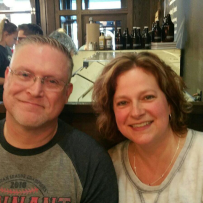
Hi Cindy. Tell us about yourself and your role at Jacobs.
Hello! I am the Group Lead for the Transportation Engineering team in the Ohio, Michigan and Indiana region. I also serve as a senior project manager and transportation engineer and work in the Solutions & Technology space as technical specialist highway and traffic safety. My home base is in the city of Brunswick in northeastern Ohio where I live with my husband, son and the three amigos... two dogs and a cat.
I also am thrilled to say that I am the U.S. region lead for the ACE employee network. It is an honor to be able to serve our members and Jacobs employees in this capacity. Advocating for this community is my passion, and I’m so happy to be able to do this here at Jacobs.
How has MS impacted you? Share your story with us.
In 2001, at the age of 28, I was helping my employer prepare for a public meeting. Over the course of the day, I noticed that something was happening to me, something was off. I was feeling numbness in my face and my vision became blurry. It started on the right side of my face, with the numbness eventually engulfing my entire body. At the time I recalled thinking… am I having an allergic reaction to the stamp glue? I laugh at that now – but it was an extremely scary experience at the time, as I struggled with trying to figure out what was happening to me.
Fast forward about a year – after untold hours in the hospital, many doctor visits and test after test, I received the diagnosis that… they ‘believed’ I had MS. In fact, given the number of ‘lesions’ on my brain, they suspected that I had been forming them for many years – likely since high school. While they couldn’t definitively determine it was MS, over the course of the previous year they had tested me for practically everything else and by process of elimination, it had to be MS.
“Wow, finally!” I thought to myself. To me – this diagnosis made sense. All those years of experiencing health issues I could not explain but knew just weren’t right: In ninth grade earth science class, the day my face went numb. Migraine after migraine from high school on, with medicine never quite making them go away (we’ve concluded those may have been the times by body was trying to tell me my immune system was attacking my brain); living in a constant state of feeling unwell like I was always coming down with the flu; randomly experiencing hot flashes and extreme sweating (in my 20s!); horrid bout after bout of bladder and kidney infections (MS affects nerves everywhere.) One doctor even tried to shame in to believing I was to blame because I wasn’t taking care of myself.
“I knew that while I might have MS, MS didn’t have me… and I wanted everyone to feel like I did, to feel safe and comfortable. I wanted them to feel supported and understood. From that point forward I made it a point to be open about my MS, to educate my colleagues, subsequent employers, family and friends. ”
Cindy Yerkey
Jacobs Ohio/Michigan/Indiana Transportation Group Leader, Highway and Traffic Safety Specialist, and U.S. Region Lead for ACE Employee Network
By the time I was diagnosed, I has also been struggling daily with an inability to cool myself and the flushing of my face with pins and needle pains as accompaniment. I also had a weird blurry spot that would come and go in my vision. Everyone just thought I was a hypochondriac, but I knew I wasn’t. This wasn’t normal.
Still, at the time, the diagnosis was still rather bleak and while I was happy to know what was affecting me, the prognosis was uncertain. Given the state of medicine and what they knew about the disease they simply didn’t know what I should expect… could be blindness, incapacitating disability, cognitive challenges – anything and everything could come my way. Plus, when I did experience any unexpected health issue, I would always have to deal with the doctor’s first assumption being it was related to my MS.
Of course, I still hid my disease from most people at first. Immediately after diagnosis my doctors had put me on one of the three available medications at the time, which required an injection every day. Eventually, the activity of the disease slowed to the point where we were seeing no new or worsening activity – and I was in a state of remission. The disease wasn’t significantly affecting my physical abilities and after a few intravenous treatments with steroids my vision improved. What remained were invisible disabilities: mild light sensitivity, extreme heat and cold sensitivity, learning and thinking issues, fatigue and general constant feeling of malaise. Where I still feel MS the most is when I am over tired or over-heated. While my disease is in remission, I still have extensive damage to my nervous system and when in those situations the nerves ‘short circuit’ and the invisible disabilities can really interfere with day-to-day energy and stamina.
Fortunately, at the time, I was working for a very accommodating employer and had great co-workers. Even after the symptoms had subsided, they were so supportive, even allowing me to take naps at my desk after lunch each day. Additionally, regardless of what I was experiencing, they never assumed that the MS would limit my ability at work. I look back and realize how that experience was truly exceptional and was also instrumental to my approach to living with the disease. This was and in many cases is still the exception and not the norm. This is where my passion for advocating on behalf of myself, the MS community and especially people with invisible disabilities really took root.
I knew that while I might have MS, MS didn’t have me… and I wanted everyone to feel like I did, to feel safe and comfortable. I wanted them to feel supported and understood. From that point forward I made it a point to be open about my MS, to educate my colleagues, subsequent employers, family and friends. I tried to lead by example to represent everyone with MS and disability and use my voice as a tool to spread awareness about MS in a thoughtful and loving way. I know not everyone is comfortable being open so I wanted to be the voice for more than just myself. I wanted to break the stigma, educate others to take away the mystery, hit all forms of bias head on through education and open communication about my MS.
Fast forward to today…. after nearly 15 years with Jacobs I can say I honestly feel I am where I belong – working for a company that truly wants to support and employed people with disabilities, surrounded by a team that values me for my contribution without any discount because of my disabilities. But that doesn’t mean we don’t still have work to do. That doesn’t mean that we won’t ever experience the stigma and unconscious bias around our disabilities, but it does we are moving in the right direction and maybe one day, we’ll all be able to share who we are without fear of stigma or bias.
people around the world have MS
MS is 2-3 times more common in women than men
people are diagnosed with MS every day
What do you enjoy about being part of #OurJacobs?
Where do I start? I enjoy so many things. At the top of the list are the employees and culture of caring pervades throughout Jacobs. I have encountered so many amazing and compassionate people who truly embrace our Culture of Caring and live it every day. Next would be the challenging assignments and professional growth opportunities that I have been able to be a part of. I have been able to grow into a position that is my own and very rewarding.
How have you adapted the way in which you work and/or live life due to living with MS?
I’ve worked to set boundaries in my life and at work. By boundaries, I mean being firm about when I can and can’t work, what I can and can’t accommodate, and occasionally saying no. I’ve also learned to ask for help. I don’t always know when I’m overheated or when my fatigue is interfering with my ability to communicate effectively. I have colleagues around me at work and my family at home that know my condition and can help me identify those things when they are happening. Also, I also use lists… a lot of lists. Sticky notes, too. Since my short term memory can be affected, I find this is the best way to keep myself on track with regards to the many things I’m involved with.
How can colleagues be an ally to you or others in similar situations in day-to-day work life?
Listen, be observant, offer to help when needed and respect my boundaries. I’ve set boundaries and have to abide by them as much as possible. It’s not optional it’s a matter of my health. Be respectful if I request to move a meeting that is late in the day to earlier in the day when my energy is highest. I won’t do this all the time, but when I do it’s because I won’t be able to function. And when I ask for the temp to be turned down or lights to be dimmed, please try to accommodate, its honestly for more than just comfort.
Why do you enjoy being part of the ACE network and why do you think it is important?
It’s so amazing we have a space for people with disabilities and caregivers to feel safe and supported and have allies surrounding them. Not everyone is comfortable revealing their situation in the work setting. This is a place to go where you can find support, information, dialogue with people that are like you or want to know, support, and understand. It’s also a space where ideas are formed and take shape related to effecting change both within the company and our community.
How has being a member of ACE and Jacobs JENs helped you make connections that have led to increased community connection, self-connection and/or connections to quality care?
I enjoy meeting new people from all parts of the company that are within this community. It has opened doors to new opportunities to support, mentor, learn and make new friendships. I particularly like it’s safe to ask questions about other disabilities and in turn safe to share and educate about mine. I have learned so much from the stories that others have shared. I am also so amazed at the compassion and passion people have within the community related to supporting. These are the drivers of our vision and who truly make Jacobs an employer like no other. To have this community of support and advocacy is amazing.
Thank you for the opportunity to share my story!
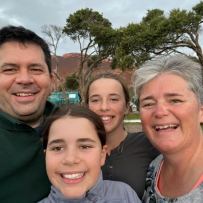
Hi Fiona. Tell us about yourself and your role at Jacobs.
I am the TogetherBeyond℠ Director for APME, based in Melbourne, Australia. Our global team is responsible for supporting, developing and driving the TogetherBeyond Strategy and actions across all of our regions alongside our business, HR and Jacobs’ Employee Networks (JENs) leaders. I see myself as an Inclusion and Diversity (I&D) advocate and ally – with a passion for connecting people, building literacy and capability around I&D and amplifying the voices of those speaking up about social justice issues.
As part of my work, I have the pleasure and privilege to work alongside all our JENs at a global and local level and, therefore, understand the power of hearing people’s unique lived experiences and stories to help inform, influence and progress the inclusion culture in our workplaces.
How has MS impacted you? Share your story with us.
And so, my MS story starts almost a year ago when I was first diagnosed with MS. It came like a bolt out of the blue…
I was at a friend’s house and whilst we were chatting, every time I moved my head from one side to the other, I felt like I was spinning out of control and quickly developed severe dizziness and nausea. Within three hours I was in Accident and Emergency and being tested for vertigo, before being tested for a potential stroke, and was put in a stroke ward for more tests over the following three days. Three weeks later, and many more tests – including a spine and brain MRI – I was told I had MS.
I knew a little about MS – only knowing a couple of people living with MS – and was faced with making some urgent and important decisions with my husband about my future…What medications to take; how would I cope if my MS progressed; what effect would it have on my work and career; what changes to my diet and exercise would help with my symptoms; and most importantly of all, how to talk to my children (aged 11 and 9 at the time) about my diagnosis.
After some serious soul searching, lots of research and many tears and hugs – I came to the conclusion that starting a course of Disease Modifying Therapy (DMT) meant I could immediately give my body the help it needed to lessen the impact of the MS – and provide some time for me to understand the disease, my symptoms and how best to manage it all with my busy life as a professional, and as a mum, partner and friend.
I spoke to my kids with my husband, and we have all navigated the emotional and physical journey since then together. I have a monthly infusion, with very few symptoms apart from fatigue and some challenges with keeping warm or being too hot! And it turns out that from my most recent MRI, I have had no more activity or progression, and so feeling very grateful for the medical support and interventions – as well as the physical and emotional support I have received over the last year. I have also changed my diet (eating less gluten, meat and dairy), swim more in the ocean and sleep more! And so, I have started to see my diagnosis as a way to help me make a few more healthy changes in my life as well…and I certainly feel better for it!
What do you enjoy about being part of #OurJacobs?
I love our Culture of Caring. I was immediately able to share my story with my manager and colleagues – and was blown away with the compassion, offers of support and genuine care for me and my wee clan. I have continued to share my story with many others, and believe very strongly that by leading by example, perhaps this can help others to share their stories, feel heard and supported and be able to thrive not just survive at work.
“I have appreciated colleagues checking in with me from time to time, showing kindness and genuinely asking to understand how I am doing. MS affects everyone so differently, and each day can be so different, that it can be almost invisible for many – and others may have more visible and physical symptoms and challenges – that a genuine conversation is always good for the soul.”
Fiona Rose
Jacobs TogetherBeyond Director for Asia Pacific and Middle East (APME)
How have you adapted the way in which you work and/or live life due to living with MS?
It is very early in my MS journey, and so I am still learning what I need. However, I have been able to set clearer boundaries and goals around working, exercise, diet and rest – and feel less guilty about time for myself to replenish my reserves. I certainly sleep more than I have in years – but not sure if that is simply being a more seasoned parent of slightly older kids that now wake less through the night!
How can colleagues be an ally to you or others in similar situations in day-to-day work life?
I have appreciated colleagues checking in with me from time to time, showing kindness and genuinely asking to understand how I am doing. MS affects everyone so differently, and each day can be so different, that it can be almost invisible for many – and others may have more visible and physical symptoms and challenges - that a genuine conversation is always good for the soul.
Why do you enjoy being part of the ACE network and why do you think it is important?
I know how much supporting and being part of this network has helped me and others connect on a truly meaningful level around a wide range of issues relating to living with disabilities. It has helped me find solace and friendship when I was diagnosed, and I knew that beyond the safety of my immediate team and colleagues, that I would feel safe and supported by an even wider network of our Jacobs’ team.
ACE is helping to connect, support and raise awareness for so many of us with such diverse lived experiences of disabilities – and by doing so can inform and increase our disability literacy and confidence, and ensure that we talk more about opportunities rather than barriers – both as we mature as a network and as a more inclusive organization.
How has being a member of ACE and Jacobs JENs helped you make connections that have led to increased community connection, self-connection and/or connections to quality care?
For me it is all about making genuine connections – knowing that these relationships and networks are available has given me the confidence to be myself, ask for help and learn from others. Knowing many others are dealing with similar, or sometimes very different issues, allows us all to be a little more humble and grateful.
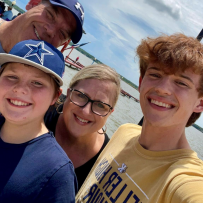
Hi DeDe. Tell us about yourself and your role at Jacobs.
I am the Vice President of Global Talent Management and Transformation at Jacobs and am located in the Dallas/Fort Worth, Texas area. My team is responsible for e3: engage. excel. elevate., e3 Experience, succession planning, high potential talent management, assessments, competencies... and all other things talent management! Our bold company strategy and growth initiatives have expanded our opportunity to focus on our organizational health and culture, as well as talent initiatives focused on enabling our transformation to a tech-enabled solutions provider. I'm passionate about creating an environment at Jacobs where we can all grow and thrive.
In addition to my daily work, I am honored to serve as the Executive Sponsor for the U.S. ACE employee network, which allows me to work with a great team that is deeply passionate about advocating for those with a disability, their allies and care givers.
How has MS impacted you? Share your story with us.
I was diagnosed with MS 25 years ago, while I was in graduate school earning my MBA. Out of nowhere, my right hand went numb, then my right leg, and then the entire right side of my body. Although there is not one definitive test for MS, they did an extensive series of tests that all pointed to MS as the likely culprit, so I received the official diagnosis. For about 6 months to a year, I really struggled with numbness, tingling, balance and walking. As my body started to heal from that initial episode, life basically went back to normal. In fact, I was symptom-free for almost 17 years, which is very rare with MS. It is so rare that there was a lot of speculation by doctors who thought I had possibly been misdiagnosed.
About seven years ago, the right side of my body went numb again and I went back down the path of reconfirming my MS diagnosis. This time it was clear it was MS. The beauty of all the time that had passed was the fact that there had been so many medical advances in Disease Modifying Therapies for MS. While there isn’t a cure for MS, and there are no medications that can fully heal damage from MS, these DMTs are designed to keep your body in a state of remission to prevent further damage and relapses. I have been lucky that these DMTs have worked well for me and thus have a fairly mild case of MS. My most bothersome symptom is fatigue, which generally accompanies chronic diseases, given your body uses so much energy in both fighting the disease and in allowing you to accomplish the daily tasks associated with just living your life. I also have a bit of nerve damage from my MS relapses that never fully healed, so I’m well acquainted with constant numbness and tingling, especially in the heat of the Texas summers.
What do you enjoy about being part of #OurJacobs?
I love our Culture of Caring. For the longest time, I never really shared that I had MS, primarily because I worried that people would see it as a hinderance to my performance. As we started to talk more about inclusion and our culture of caring, I started talking about it openly more and more. I’m so open about it now, there’s probably not a lot of people that don’t know my story! And to a person, I have been so pleasantly surprised at how much support I’ve been given and how much people genuinely care.
How have you adapted the way in which you work and/or live life due to living with MS?
With a chronic illness, managing your stress levels is really important in keeping yourself healthy and your energy levels up. I’ve had to learn to set boundaries, mostly for myself. My team and co-workers are phenomenal about looking out for each other and jumping in to cover when one of us needs it. It’s mostly been about how I get myself in the mindset of allowing people to help me. I’ve always been very independent and take on way too much, even from a very young age. But at some point, you have to realize you can’t do everything, so my adaptation has really been talking myself into establishing healthy boundaries and putting away work when needed, getting rest when needed, and making sure I have energy for other important things in my life, like family, hobbies, kid’s sports/activities, and being highly involved in our community. I am a wife, and a mom to two amazing teenage boys, so I need some energy left in the tank at the end of the workday!
“All of our stories and aspirations are different, but I know one thing… our disabilities shouldn’t hold us back from accomplishing our dreams. My hope is that ACE can help our employees live up to their potential at Jacobs.”
DeDe Watkins
Jacobs VP, Global Talent Management and Transformation
How can colleagues be an ally to you or others in similar situations in day-to-day work life?
I think it’s about having a genuine interest in knowing how others are doing. REALLY check in with others, not just the superficial check in before you hit your task list. When we create an environment where people can show up as they really are, we create an environment where it’s apparent if something is wrong with someone. That opens the door to conversations that allow us to know their full story and what they may be struggling with and offer support in a meaningful way.
Why do you enjoy being part of the ACE network and why do you think it is important?
Some of us are living with visible or invisible disabilities every day, and I think it’s important that we see that there is more to a person than their disability. It is a part of who they are, not completely who they are. Raising awareness through ACE helps us learn how to connect with others and provide support.
MS is something that I live with every day, but try to not let it define me or dictate the course of my career. I’ve learned a lot along the way of how to manage a chronic disease, while also living up to my full potential both inside and outside of work. All of our stories and aspirations are different, but I know one thing… our disabilities shouldn’t hold us back from accomplishing our dreams. My hope is that ACE can help our employees live up to their potential at Jacobs.
How has being a member of ACE and Jacobs JENs helped you make connections that have led to increased community connection, self-connection and/or connections to quality care?
Being part of ACE has been eye-opening for me around the challenges so many of us face at Jacobs. Just knowing there are others that are dealing with chronic diseases or disabilities helps you realize you’re not alone. If you can push yourself out of your comfort zone to be vulnerable in sharing your story, you will be so surprised at all the connections you can make, not only in receiving support, but getting the chance to offer it to others. Sometimes helping others gives us a new lens in which to view our own struggles. We spend a lot of time at work every day, so please feel comfortable to share who you really are and what you’re dealing with. It makes us stronger as a team and allows you to see just how good and kind people can be.
One of Jacobs’ eight employee networks, ACE which stands for Access. Connect. Empower – champions accessibility, community and opportunity for caregivers and employees with disabilities. The network provides information, resources and networking, runs awareness events and advocates for positive change. Anyone in the company can join ACE to be a better ally and learn more, and by marking occasions such as World MS Day, we’re welcoming our external audiences along with us on the inclusion journey.
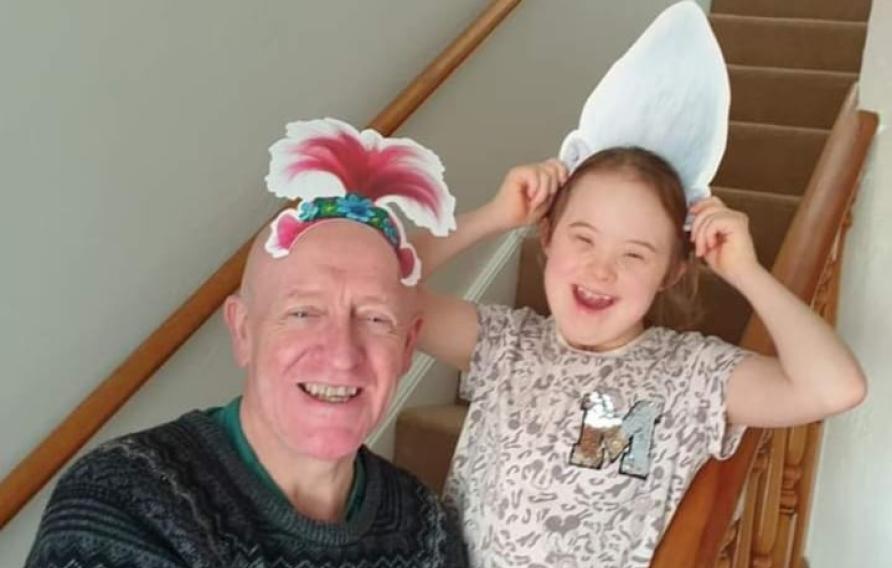

To celebrate World Down Syndrome Day 2022, we connected with our employees and members of Jacobs’ ACE employee network to talk about what #inclusionmeans to them, their personal Down syndrome experiences ,and for an exclusive on how the network and Jacobs are celebrating this year.
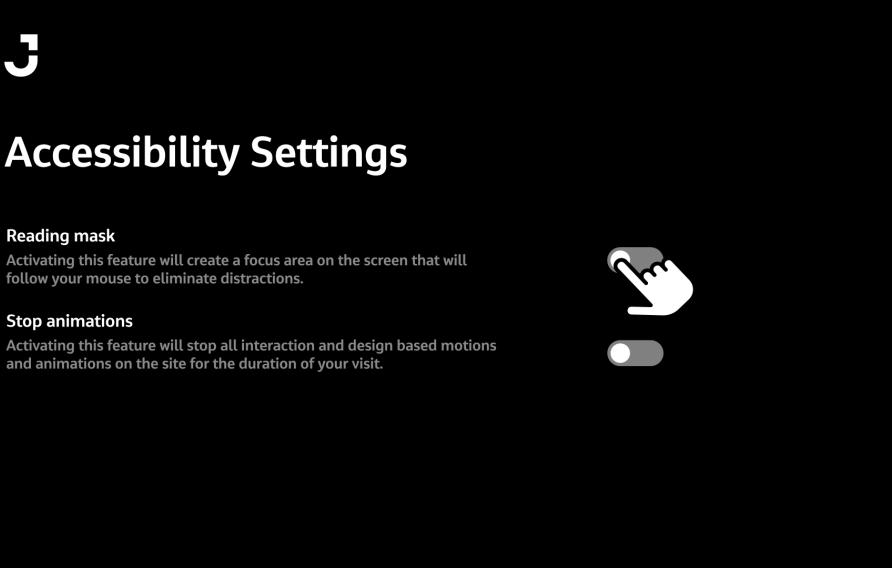

On Global Accessibility Awareness Day, explore how the new Jacobs.com website puts accessibility and inclusion first.
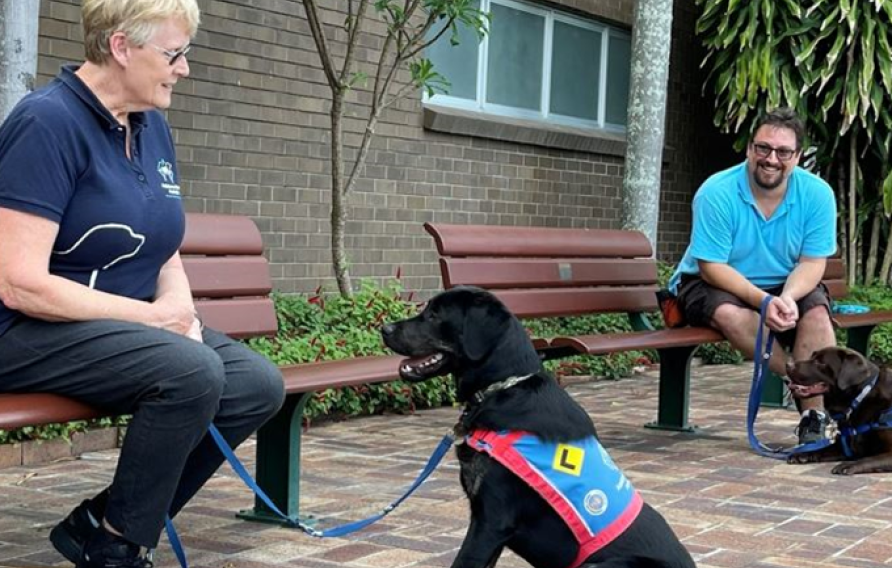

In this Q&A, Paul Rendle shares highlights from our Jacobs-sponsored Assistance Dog ’s first year of duty and talks about how our giving and volunteering program, Collectively, made this initiative possible.
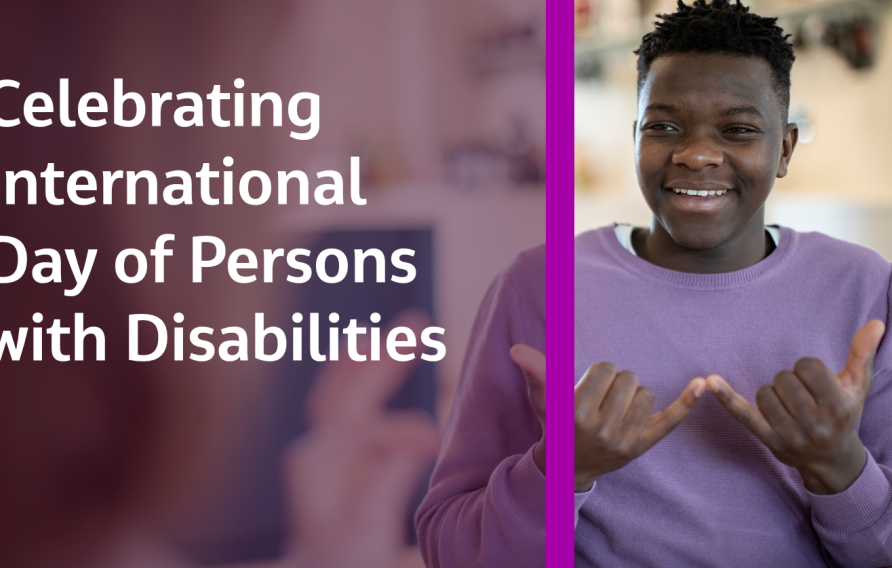

In honor of the United Nations’ International Day of Persons with Disabilities, we’re reflecting on Jacobs’ achievements – including joining the #PurpleLightUp initiative and hitting new milestones with our ACE employee network – and the path ahead for disability inclusion in this article.
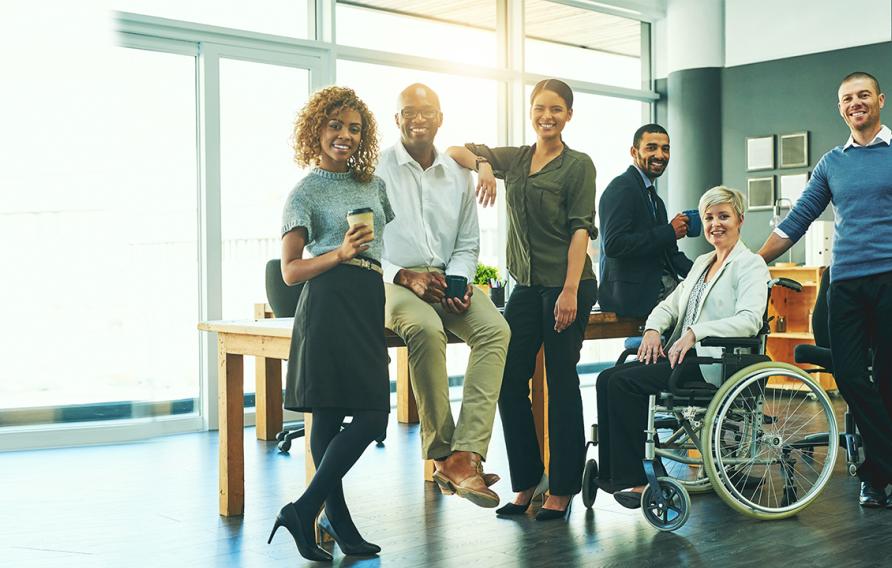

Jacobs received its first top score in the 2021 Disability Equality Index (DEI), a national benchmarking tool on corporate policies and practices related to disability inclusion and workplace equality.
What drives you drives us as we work to build a better world – together. At Jacobs, every day is an opportunity to make the world better, more connected, more sustainable.
We’re always looking for dynamic and engaged people to join our team. Bring your passion, your ingenuity and your vision.